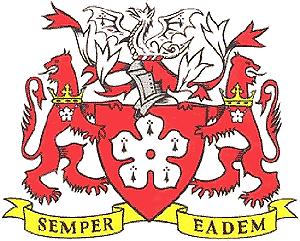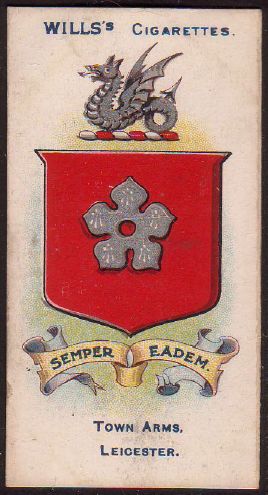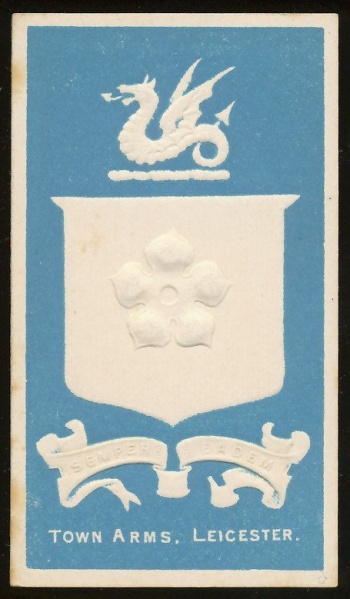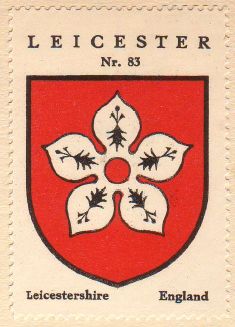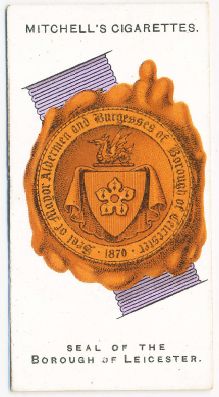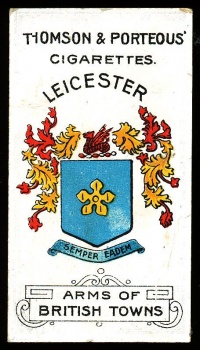Leicester
| Heraldry of the World Civic heraldry of the United Kingdom |
LEICESTER
Official blazon
Arms : Gules, a cinquefoil pierced ermine.
Crest : On a wreath of the colours, A wyvern snas legs argent strewed with wounds gules, wings expanded ermine.
Supporters : On either side a lion reguardant gules gorged with a ducal coronet, suspended therefrom by a chain Or a cinquefoil ermine pierced gules.
Motto : 'SEMPER EADEM'
Origin/meaning
The arms were officially granted on December 2, 1926, but the arms (without supporters) were already recorded at the Visitation on 1619.
The Arms of the City of Leicester of the cinquefoil and wyvern were confimed on the city at the Heraldic Visitation of 1619. The crest is based on earlier motifs of the first Earl of Leicester, Robert De Bellomonte, (the cinquefoil). When the Duke of Lancaster inherited the Earldom of Leicester he held land within the town and hence the Lancastrian connection.
The city status was granted in 1919 and following application by the City Council in 1926 the College of Arms allowed two supporters to be added to the design; the Lancastrian Lions on either side of the cinquefoil and Elizabeth I's motto (translated as Always the same) beneath.
| The arms as used on a JaJa postcard +/- 1905 |
The arms on a Wills's cigarette card, 1906 |
| The arms on a Dexters cigarette card, 1905 |
The arms in the Coffee Hag albums +/- 1925 |
| The arms on a Yhompson and Porteous cigarette card, 1906 |
The arms as used on a Faulkner postcard +/- 1905 |
Contact and Support
Partners:
Your logo here ?
Contact us
© since 1995, Heraldry of the World, Ralf Hartemink 
Index of the site
Literature : Image provided by Giovanni Scotto d'Aniello, Italy
